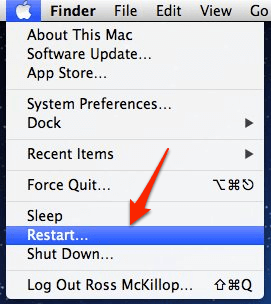
This is particularly useful for those who frequently log into remote servers and prefer a passwordless login environment. The ssh-agent is a helper program that keeps track of users identity keys and their passphrases. This solution eliminates the need to continually enter the passphrase, making the SSH login process more efficient and user-friendly.īy permanently adding the passphrase to an ssh-agent, the process of logging into a remote server via SSH can be made more convenient. However, on Ubuntu, the passphrase will only need to be entered once after a reboot. Type scp DCMacAgent.zip adminusernamehostname: to copy the agent to the target computer.
#Mac restart ssh agent mac#
Copy the downloaded Mac agent Open the terminal Navigate to the location where the agent is downloaded.
#Mac restart ssh agent download#
Ensure that you are logged into the box with another shell before restarting sshd to avoid locking yourself out of the server. Login into the Mac computer as administrator Download the Mac agent.
#Mac restart ssh agent password#
To avoid this inconvenience, this article outlines the process for permanently adding the passphrase to an ssh-agent.įor users of macOS and Windows, the passphrase will not be required even after a machine reboot. For SSH Password, enter the password you use for your SSH user. Windows doesnt have the same flexibility as macOS and Linux when it comes to the /.ssh/config file. Although the passphrase only needs to be entered once during a terminal session, it must be re-entered if the session is terminated. Restart methods differ depending on whether you installed Grafana using Homebrew or as standalone macOS binaries. When setting up a passwordless SSH login environment using private and public keys, it is necessary to enter a passphrase for the private key when logging into a remote server via SSH. ssh host, the agent is started with SSHAUTHSOCK but not SSHAGENTPID Alexander Kucheryuk at 0:30 Add a comment 54 Also, along with all this, is it possible to find an existing ssh-agent process and add my keys into it Yes. Let ssh-agent always use macOS keychain On my Mac (High Sierra) and SSH OpenSSH7.8p1, when invoking ssh connection directly, e.g.It's not clear to me where the ssh-agent defaults can now be set.Īlso, from what I have read while chasing down a solution to this myself, it appears that OS X's previous pop-up dialog box which added the key to ssh-agent seems to have been removed ssh prompts for the passphrase directly in the terminal window now (at least it does for me). The only thing that no longer seems to work for me as in older versions of OS X is setting ssh-agent defaults such as a timeout in ~/Library/LaunchAgents/. (the first line may not be necessary, may be overridden by the second.)Īfter doing so, the first "ssh-add -D" removed the entry from MacOS's keychain, and now running ssh or any program that invokes ssh prompts for the passphrase and stores the key via ssh-agent (if not already there), as expected. On most Linux systems, ssh-agent is automatically configured and run at login, and no additional actions are required to use it. To enable SSH agent starting automatically on demand (this happens by integrating SSH agent with launchd) you need to open a terminal and run: sudo touch /var/db/useLS Then you need to reboot. Using the info in the link above, I added the following lines to my ~/.ssh/config file and Sierra now uses ssh-agent to store the keys (rather than the keychain), and they can be listed, added or removed with ssh-add -l, shh-add, or ssh-add -D


The ssh client receives the key challenge, and forwards it to the waiting agent.

I found a reasonable solution in this forum: et-my-ssh-keyfile-passphrase If you are connecting via terminal, then just SSH to your LEDE/OpenWRT.


 0 kommentar(er)
0 kommentar(er)
